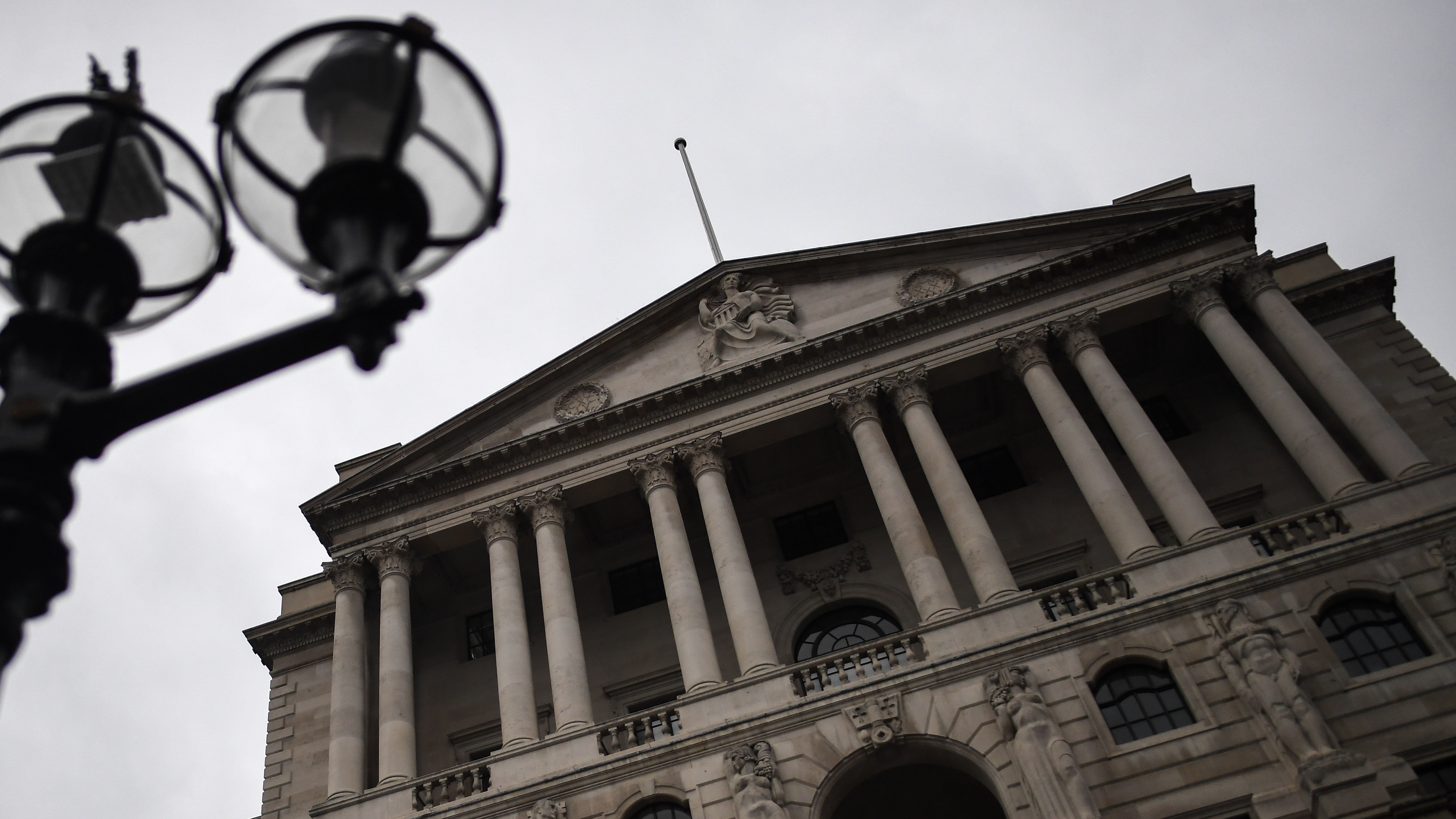What next for annuities after government U-turn?
Plans to allow annuities to sold on have been abandoned over fears market will not offer value

A free daily email with the biggest news stories of the day – and the best features from TheWeek.com
You are now subscribed
Your newsletter sign-up was successful
Last week the government announced that it was going to scrap plans for a secondary annuity market.
Essentially an extension to so-called pension freedoms, the government backed the established of annuity re-sales last year to allow pensioners trapped in poor value products to escape in return for a lump sum.
“After spending a year-and-a-half promising five million retired savers that the pension freedoms would be extended to them, the whole plan was canned in a short statement that was sneaked out as ministers fussed over the third runway at Heathrow,” says Dan Hyde in The Daily Mail.
The Week
Escape your echo chamber. Get the facts behind the news, plus analysis from multiple perspectives.

Sign up for The Week's Free Newsletters
From our morning news briefing to a weekly Good News Newsletter, get the best of The Week delivered directly to your inbox.
From our morning news briefing to a weekly Good News Newsletter, get the best of The Week delivered directly to your inbox.
Was a secondary annuity market a bad idea?
It comes as no surprise to finance experts that the plan has been ditched.
The industry has largely refused to support plans to allow people to sell their annuities. Only a couple of insurers signed up to take part and buy unwanted products. The reason being, “it would have been an administrative nightmare,” says Hyde.
If you sold your annuity onto another company in return for a lump sum, your annuity provider would then have to pay that company an income while also keeping track of you. Your provider would have to know when you die in order to know when to stop making payments.
A free daily email with the biggest news stories of the day – and the best features from TheWeek.com
Another issue was that there was a good chance “pensioners would get ripped off", says Juliet Samuel in The Telegraph.
If annuities are so bad and offer such a pitiful return on the investment, who would want to buy them? The answer is unscrupulous buyers who would have paid a terribly low price for the guaranteed income, to protect against the risk of the seller dying earlier - and knowing that most are desperate for a get-out.
“You should shout ‘hurrah' or maybe do an airpunch, for the U-turn is a sign that the government recognised that the secondary market could have left thousands of vulnerable people much worse off”, says Anne Ashworth in The Times.
Where does this leave pensioners?
“Now we have two groups of savers split by a pension apartheid – and the government doesn’t seem to care,” says Hyde.
On the one hand there are the people who haven’t yet been forced to buy an annuity and can freely access their pension after the age of 55 to do as they please.
“Trapped on the other side of the divide are the older savers who were frogmarched into rip-off annuities and are locked into miserably low incomes for life.”
What can be done?
There are alternative solutions to the annuity problem.
Hyde wants to see the Treasury force “greedy insurers” to allow customers to cash-in their annuities. If customers are unhappy with the product they should be allowed to get their money back, minus any income that has already been paid and “costs of a few hundred pounds”.
But it isn’t just about helping the pensioners already stuck with poor financial products that don’t serve their purpose.
The government also needs to tackle a new problem on the horizon: the millions who have taken up auto-enrolment, are building pension savings but have no financial acumen to help them make good financial decisions when they are approaching retirement.
“Telling the average saver the difference between an income drawdown product and an index-linked annuity is about as valuable as a production of Wuthering Heights in semaphore (Monty Python tried it),” says Samuel.
Therefore, the government needs to take the same approach to people turning their pension into an income as they did to getting people to save in the first place – and this would involve going back to nudging them into a product, albeit with freedom to do otherwise.
“The Government should introduce a new default option: pensioners’ cash should be automatically invested into suitable post-retirement investments chosen by the trustees of their scheme,” says Samuel.
Osborne's pension freedom extension scrapped
19 October
The Treasury has scrapped former chancellor George Osborne's plans to allow pensioners to sell their retirement annuities if they offer poor value.
Simon Kirby, the economic secretary to the Treasury, said: "It has become clear that we cannot guarantee consumers will get good value for money in a market that is likely to be small and limited."
Ministers were concerned the small size of the market would mean savers were "ripped off twice by insurers", says the Daily Telegraph.
The plans were first mooted in 2014 by former pension minister Steve Webb, who argued they would extend the freedom to unlock pension cash granted in that year's Budget.
Under the previous rules, pensioners were not able to access their savings before retirement and were required to use their fund to provide an ongoing income.
For many, this meant using their entire fund to buy an annuity - an insurance policy that provides a set income until death, although the rates on these have been in decline and are widely considered to be poor value. At the moment, says broker Hargreaves Lansdown, even the best rate for a standard policy offers just £4,698 a year for those cashing in a £100,000 pot.
Webb argued it was unfair that these pensioners remained trapped while other people were being given the right to access their pension cash freely from age 55 under Osborne's reforms.
Osborne himself adopted the policy in March 2015 and it was to come into effect next April, says the BBC.
However, the government feared that people who had already potentially been ripped off by their life insurer once with a poor value annuity might be once more, as providers hedged against the risk of them dying earlier than expected by applying discounts of up to 20 per cent. Arranging brokers and advisers would also take a cut.
A lack of competition due to many firms opting not to participate would only have exacerbated these concerns.
The likes of Standard Life, Royal London and LV had already said they would not buy pension incomes on a wider "secondary" market.
Yesterday's decision was backed by industry figures including the Association of British Insurers (ABI).
Rob Yuille, head of retirement policy at the ABI, said: "The industry has consistently supported the freedom and choice reforms, but we agree with the government that the secondary annuity market came with considerable risks for customers."
Pension freedoms extended as retirees given option of selling income
16 December
Pension freedoms have been extended again, with now even those that have long since crystallised their fund into an income able to cash in for a lump sum.
Proposals to extend the right to encash a pension pot over the age of 55 to legacy cases were first put forward by former Lib Dem pensions minister Steve Webb in the final year of the coalition. They have now been confirmed by the new Conservative government, the Financial Times says, "in spite of concerns the deals could be poor value for money".
Specifically the new rules relate to those who previously used their pension pot to purchase an 'annuity', an insurance contract that guarantees to pay a set level of income for the rest of a person's life.
Buying an annuity is a way to guarantee income will not fall, but it is also essentially a gamble that a person will live long enough to justify forgoing future access to their pot. It is effectively a one-way decision, as under current rules selling the income stream on counts as an 'authorised payment' and money received is taxed at a minimum of 55 per cent.
Now, only marginal rates of tax will apply. This is the same as if an untouched pension pot is cashed in under the standard pension freedoms.
A bad deal?
The problem with annuities is that rates have been in decline as a result of longevity – and, according to a report last year from the regulator, due to market "disorder" that means few retirees shop around. The average pot used to buy an annuity at the time of the FCA's study was £17,700, which at an average of around five per cent would produce an income of around £70 a month.
Given that new retirees can instead cash-in for a five-figure lump sum, it is easy to see why there was a clamour for freedoms to be extended. But Tom McPhail, head of retirement policy at Hargreaves Lansdown, warned that existing annuitants "are at risk of losing out twice over" as the discounts providers will apply to buy the income streams will be hefty.
In simple terms, the lump sum may look attractive but will represent bad value and could leave the individual short of cash later in retirement.
To prevent this the government is putting in place a host of protections, including forcing providers to flag up its free retirement advice service Pension Wise and enforcing independent financial advice on higher-value cases, the BBC notes.
Ultimately what may have swung its decision, the FT hints, is the tax take. The Treasury has disclosed that it reckons the income tax raised from the portion of the £13bn of annuities in the market that are sold back could reach £1bn in the first two years of the policy alone.
-
 ‘My donation felt like a rejection of the day’s politics’
‘My donation felt like a rejection of the day’s politics’Instant Opinion Opinion, comment and editorials of the day
-
 Trump wants a weaker dollar but economists aren’t so sure
Trump wants a weaker dollar but economists aren’t so sureTalking Points A weaker dollar can make imports more expensive but also boost gold
-
 Political cartoons for February 3
Political cartoons for February 3Cartoons Tuesday’s political cartoons include empty seats, the worst of the worst of bunnies, and more
-
 Six ways to boost your finances in 2026
Six ways to boost your finances in 2026The Explainer It’s not too late to make a new year’s resolution to finally get organised money-wise
-
 The financial impact of returning to work in later life – should you 'unretire'?
The financial impact of returning to work in later life – should you 'unretire'?The Explainer Many people return to the workplace after retirement age, but what could it mean for your finances?
-
 State pension underpayments: are you getting the right amount?
State pension underpayments: are you getting the right amount?feature Hundreds of thousands of women may have received less than they were owed
-
 Early retirement: what is the ‘FIRE’ movement?
Early retirement: what is the ‘FIRE’ movement?feature Younger workers are aiming to quit the workforce early through extreme saving and investment
-
 How women can bridge the gender pension gap
How women can bridge the gender pension gapIn Depth New figures have shown the extent of the problem for women in retirement years
-
 How to plug the pension gap by buying National Insurance credits
How to plug the pension gap by buying National Insurance creditsfeature A temporary change in the state pension offers a ‘golden opportunity’
-
 Are UK pensions safe?
Are UK pensions safe?Today's Big Question Bank of England governor says its debt market support must end – but the multi-billion-pound scheme could be extended
-
 Pensions: time to end the triple lock?
Pensions: time to end the triple lock?In the Spotlight Ministers must decide whether to risk alienating older voters by ending guaranteed pension rises